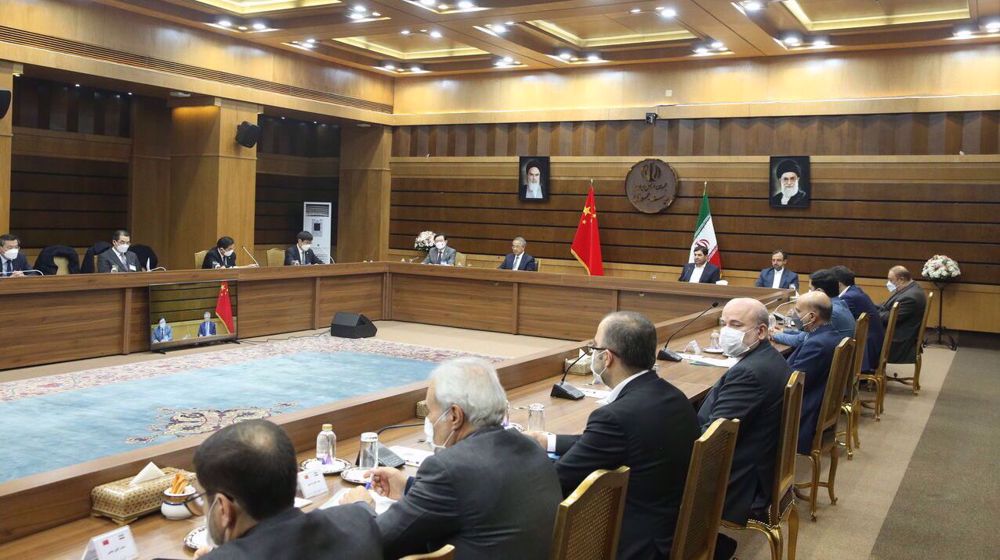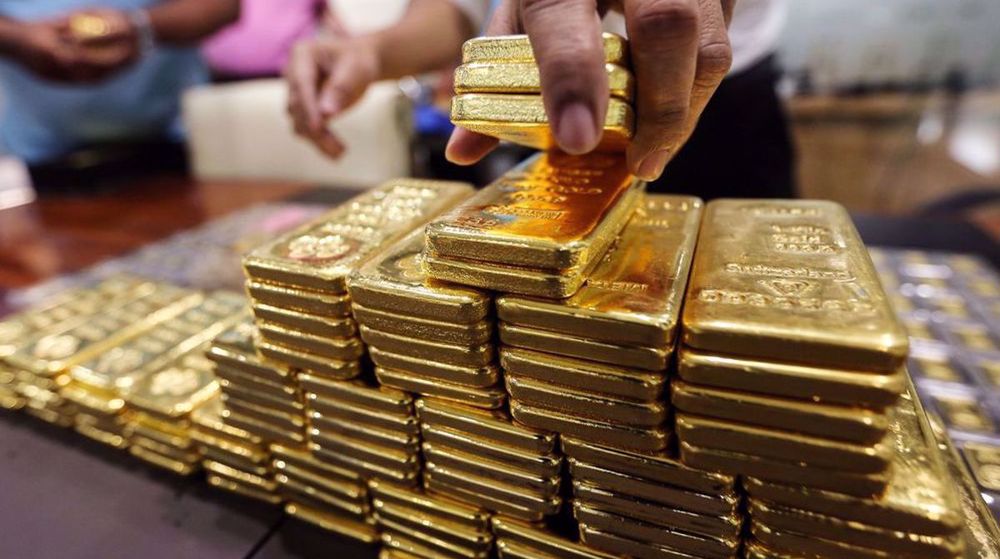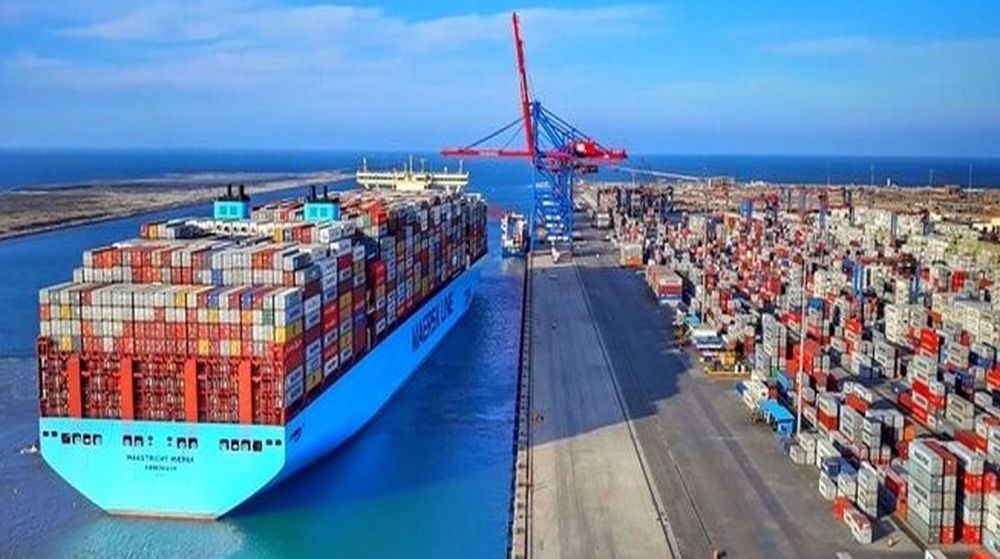Minister: Iran, China finalize MoUs to implement 25-year deal
Iran and China finalize 16 MoUs between the two countries to implement their 25-year roadmap for strategic partnership, Minister of Economic Affairs and Finance Ehsan Khandozi says.
“Executive measures in the field of oil and gas, banking, investment and strategic projects were put on the agenda to be approved in the next meeting of the presidents of the two countries in the new future,” Fars news agency quoted him as saying Tuesday.
The agreements were reached during his meeting with vice premier of the People's Republic of China Hu Chunhua who is currently visiting the Islamic Republic with the aim of cultivating a deeper partnership.
“Given that the political and economic will of the two countries is to improve their capacities despite the international restrictions and sanctions pressures, we have seen a nearly 20% increase in trade and the outlook for 2023 is much stronger,” Khandozi said.
Iran and China have agreed to develop a 25-year roadmap for strategic partnership, with the idea first conceived in the 1990s.
Hu met Iranian President Ebrahim Raeisi later Tuesday, conveying President Xi Jinping’s greetings and saying that China “will not waver in its determination to develop their comprehensive strategic partnership”, China's Xinhua News Agency reported.
Economic ties are a pillar of the Comprehensive Strategic Partnership (CSP) that China and Iran have devised.
According to economists, it represents "a potentially material shift to the global balance of the oil and gas sector” and could mark a "seismic shift in the global hydrocarbons sector” where no US dollars would be involved in commodity transaction payments.
Beijing and Tehran announced the beginning of the CSP implementation phase last January. With its implementation, China-Iran trade which is currently hovering below $2 billion in total value per month is expected to increase.
Iran’s long-awaited accession to the Shanghai Cooperation Organization (SCO) in September has also generated a lot of anticipation to help trade with China and other members flourish.
According to deputy foreign minister for economic diplomacy, Mehdi Safari, trade between the two countries surpassed $20 billion in the first seven months of the Iranian year which began on March 20, of which $10 billion is Iran's exports.
"By the end of this year, trade between Iran and China will reach more than $30 billion," he said, noting that with the agreements made with Beijing, the export of Iranian agricultural products to China will increase.
Head of parliament's national security and foreign policy commission Vahid Jalalzadeh agreed that bilateral trade will increase significantly if the comprehensive strategic plan is implemented.
"The Islamic Republic is currently under the most severe oil and shipping sanctions, and if a suitable environment is created after the sanctions are lifted or neutralized, Iran's relations with countries will also increase," he said.
Relations between Iran and China go as far back as the ancient Silk Road, but they are gaining strategic significance because the West’s refusal to work with Iran under the US pressure and its efforts to clip China’s wings and stop its economic and political rise is automatically pushing Tehran and Beijing into an alliance of sorts.
Since the 1979 Islamic Revolution, American businesses have been prevented from trade with Iran, while their European counterparts have withdrawn amid US threat of sanctions. That has helped Chinese companies move in and fill the void.
As a result, Iran and China have forged a unique partnership which is almost impossible or not easily viable with any other country.
China is still Iran’s biggest oil client despite Washington’s bid to bring Tehran’s exports down to zero.
Iran’s rail sector had become a magnet for rail engineering and rolling stock firms from all over the world before US sanctions in 2018 forced them to withdraw. The pullout left the Chinese with a less contested business terrain.
China’s close involvement in the build-out of Iran’s manufacturing infrastructure is seen entirely in line with its mammoth One Belt, One Road initiative.
'Gaza has won': Social media users react to ceasefire with mix of relief, joy
Iran seeks South Korea’s assistance for AI, fiber-optic projects
VIDEO | Iran's 'Eqtedar' (Power) maneuver
Israel hits HTS military target in Syria for 1st time since fall of Assad
VIDEO | Press TV's news headlines
Israel has slaughtered 13,000 students in Gaza, West Bank
VIDEO | More Zionist than Zionists: Biden’s legacy to be defined by Gaza genocide
Hamas confirms handing approval of Gaza ceasefire deal to mediators










 This makes it easy to access the Press TV website
This makes it easy to access the Press TV website